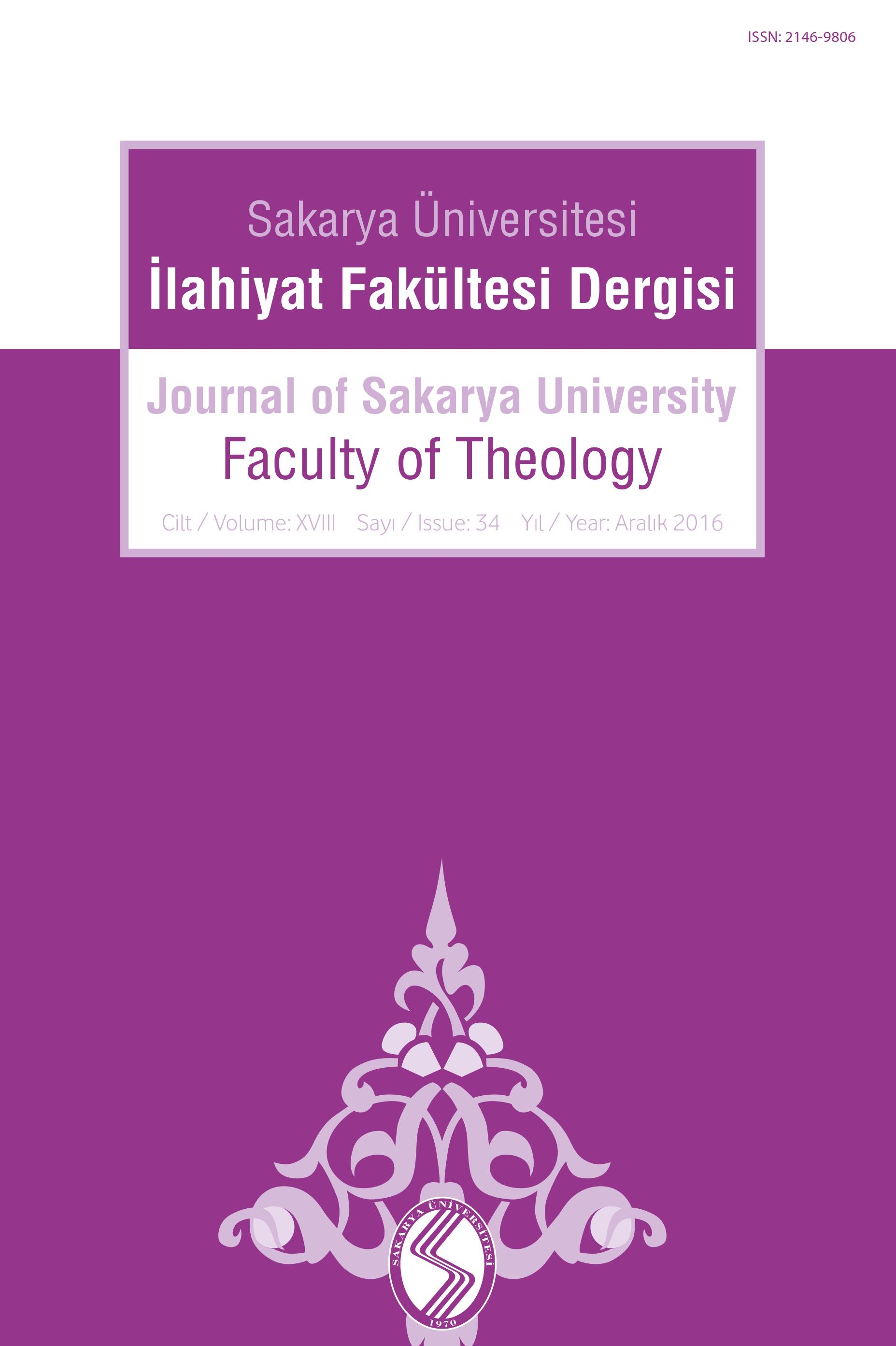İLAHİYAT FAKÜLTESİ ÖĞRENCİLERİNİN PSİKOLOJİK İYİ OLUŞLARI İLE DEĞER YÖNELİMLERİ ARASINDAKİ İLİŞKİ
On The Relationship Between Psychological Well-Being and Value Orientations of Students of Theology Faculty
Author(s): Mustafa UluSubject(s): Education, Psychology, Theology and Religion
Published by: Sakarya üniversitesi
Keywords: Psychology of Religion; Psychological Well-being; Value Orientation; University Students; Theology Faculty;
Summary/Abstract: It is aimed to investigate the relationship between the psychological well-being of university students and their value orientations in this research. The universe of study is the students of Theology Faculty. In the sample group, 683 Theology Faculty students were selected from Erciyes, Dicle and Karadeniz Technical University through convenience sampling. Quantitative analysis techniques have been utilized in the analysis of the data. Mean and standard deviation from descriptive statistical methods; independent groups t-test to determine the difference between two means and Pearson Moments Multiplication Correlation technique and Regression Analysis to investigate the relationships between variables from inferential statistical methods were used when the data were analyzed. As a result of the research, it was determined that the average score of the students' psychological well-being is 3.63; that students have the highest average in universalism factor with 5,11 score and have the lowest average in the power factor with 3.49 score in value orientation; that women's mean scores in psychological well-being total score were significantly higher than men's mean score; that mean scores of women in self-direction, stimulation, hedonism, security, conformity, benevolence, and universalism factors and mean scores of men in power factor were significantly higher in value orientation; that there was a significant positive relationship between psychological well-being total score and self-direction, stimulation, hedonism, achievement, security, conformity, tradition, benevolence, and universalism. Moreover, as a result of regression analysis, self-direction, stimulation and benevolence value orientations seem to explain psychological well-being at a significant level of 19%.
Journal: Sakarya Üniversitesi İlahiyat Fakültesi Dergisi (SAUIFD)
- Issue Year: 20/2018
- Issue No: 37
- Page Range: 183-215
- Page Count: 33
- Language: Turkish

